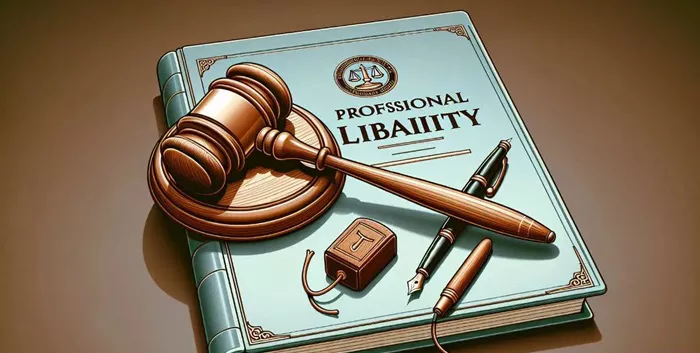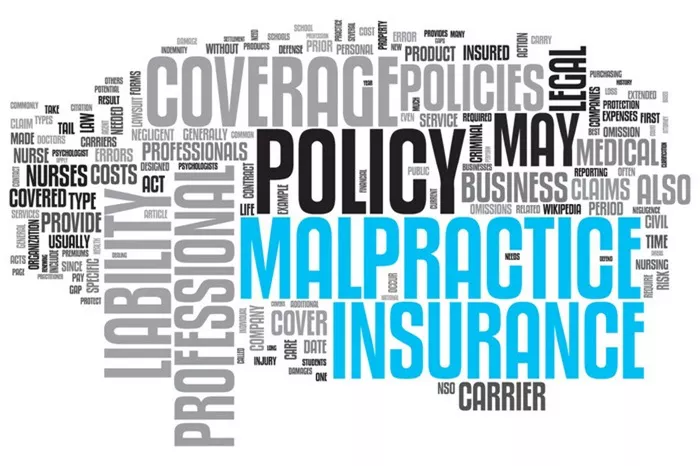Professional Liability Insurance (PLI), also known as Errors and Omissions (E&O) Insurance, is a critical safeguard for professionals who offer specialized services or advice. This insurance is designed to protect individuals and businesses from the financial fallout associated with claims of negligence, errors, omissions, or other issues that may arise in the course of providing professional services.
Professionals such as accountants, lawyers, physicians, architects, consultants, and other service providers often face unique risks that general liability insurance does not cover. General liability insurance typically addresses physical injuries, property damage, and other more tangible risks, but it falls short when it comes to the complexities and nuances of professional services. Professional Liability Insurance fills this gap, offering protection where general policies leave off, ensuring that professionals can operate with a level of security against potential legal claims from clients.
Coverage Areas Included in PLI
Mistakes and Errors
Mistakes and errors are an inherent risk in any professional service. PLI provides coverage for claims arising from mistakes, errors, and oversights that occur during the provision of professional services. This can include a range of scenarios, such as:
Incorrect Advice: Professionals like financial advisors, consultants, and attorneys may sometimes provide advice that, despite their best efforts, turns out to be flawed or inappropriate given the client’s circumstances. PLI covers claims related to such advice that may lead to financial losses or other damages for clients.
Flawed Designs: Architects and engineers are particularly vulnerable to claims related to design flaws or errors in their technical drawings and plans. If a building or structure fails to meet specifications or safety standards due to design errors, PLI can cover the resulting claims.
Misrepresentations: In some cases, professionals may inadvertently misrepresent facts or capabilities. For instance, a real estate agent might unintentionally provide incorrect information about a property’s value or features, leading to a client’s financial loss. PLI offers protection in these instances, mitigating the financial impact of such claims.
Undelivered Services
Promises made in the course of professional engagements can sometimes go unmet, whether due to unforeseen circumstances, resource constraints, or other factors. PLI covers claims related to services that were promised but not delivered as agreed. This is particularly relevant for:
Consultants and Project Managers: If a consultant fails to complete a project on time or to the agreed specifications, the client might incur significant financial losses. PLI can cover claims arising from these undelivered services, providing a safety net for both the professional and the client.
Freelancers and Contractors: Independent professionals who offer services such as graphic design, software development, or marketing may sometimes face challenges that prevent them from delivering on their commitments. PLI ensures that they are protected against claims from clients dissatisfied with undelivered work.
Missed Deadlines
Deadlines are a critical aspect of many professional services. Missing a deadline can lead to substantial financial harm for clients, and PLI includes coverage for claims resulting from missed project deadlines. Examples include:
Construction Projects: Delays in construction can lead to increased costs and lost revenue for property owners. If a contractor or architect is responsible for the delay, PLI can cover the claims.
Marketing Campaigns: Missing a critical launch date for a marketing campaign can have severe repercussions for a business. Marketing professionals protected by PLI can mitigate the financial impact of such missed deadlines.
Negligence or Failure to Meet Standards
Professional negligence or failure to meet established industry standards can result in significant legal claims. PLI protects professionals against these claims, which may arise in various contexts:
Medical Malpractice: Physicians and healthcare providers are at risk of malpractice claims if they fail to provide the expected standard of care. PLI covers these claims, ensuring that medical professionals can focus on patient care without the looming threat of debilitating lawsuits.
Legal Malpractice: Lawyers must adhere to stringent ethical and professional standards. Failure to meet these standards can result in claims of negligence. PLI provides essential coverage for legal professionals, protecting them from the financial consequences of such claims.
Engineering Failures: Engineers are expected to deliver work that meets specific technical and safety standards. If an engineering failure leads to damages or injuries, PLI can cover the associated claims.
see also: Is professional liability the same as malpractice insurance?
Exclusions from PLI Coverage
While PLI offers broad protection, it is important to understand its limitations. Certain scenarios are explicitly excluded from coverage:
Criminal Prosecution
Professional Liability Insurance does not cover claims or legal costs associated with criminal prosecution. If a professional is accused of criminal activity, they will need to seek separate legal representation and bear the associated costs independently.
Employee Injuries and Discrimination Lawsuits
PLI excludes coverage for employee injuries and discrimination claims. These issues fall under different types of insurance:
Workers’ Compensation Insurance: This type of insurance covers employee injuries that occur in the workplace, providing benefits for medical expenses and lost wages.
Employment Practices Liability Insurance (EPLI): EPLI covers claims related to employee discrimination, harassment, wrongful termination, and other employment-related issues.
Vehicle Business Use
Accidents and incidents involving business vehicles are not covered under PLI. Professionals using vehicles for business purposes should obtain Commercial Auto Insurance to cover potential liabilities arising from vehicle use.
Bodily Injury and Business Property Damage
PLI focuses on professional errors and omissions rather than physical injuries or property damage. General Liability Insurance is necessary to cover claims related to bodily injuries or property damage that occur on business premises or as a result of business operations.
Cyber Liability and Data Breaches
Core PLI policies typically do not include coverage for technology-based issues such as cyber liability and data breaches. However, with the increasing prevalence of cyber threats, many insurers offer separate policies or endorsements for data security and cyber liability. These specialized policies cover claims related to data breaches, cyberattacks, and other technology-related incidents.
see also:How much does professional liability cost?
Cost of PLI
The cost of Professional Liability Insurance can vary widely depending on several factors, including the professional’s industry, the size of the business, the level of coverage required, and the professional’s claims history. On average, PLI premiums range between $500 and $1,000 annually.
While this cost may seem significant, it is important to recognize that it is substantially lower than the potential legal fees and related expenses that could arise from a professional liability claim. The financial protection offered by PLI can be invaluable, providing peace of mind and enabling professionals to focus on their work without the constant worry of potential lawsuits.
Factors Influencing PLI Costs
Several factors can influence the cost of PLI, including:
Industry and Risk Level: Some professions, such as healthcare and legal services, are considered higher risk and may attract higher premiums.
Business Size and Revenue: Larger businesses with higher revenues typically face higher premiums due to the increased exposure.
Claims History: Professionals with a history of claims may face higher premiums as insurers assess them as higher risk.
Coverage Limits: Higher coverage limits and lower deductibles generally result in higher premiums.
Cost-Benefit Analysis
Investing in PLI is a prudent decision for professionals who want to protect their livelihoods. The cost of insurance is a manageable expense compared to the potentially devastating financial impact of a lawsuit. Without PLI, a single claim could result in significant legal fees, settlements, or judgments that could cripple a professional’s career and financial stability.
Conclusion
Professional Liability Insurance is an essential tool for professionals who offer specialized services and advice. It provides critical protection against claims of negligence, errors, omissions, and other professional liabilities that are not covered by general liability insurance. Understanding the scope of coverage and the exclusions of PLI is crucial for professionals to ensure they are adequately protected.
PLI covers a range of scenarios, including mistakes and errors, undelivered services, missed deadlines, and professional negligence. However, it does not cover criminal prosecution, employee injuries and discrimination claims, vehicle business use, bodily injuries, business property damage, or cyber liability issues. Professionals should consider these exclusions and seek additional coverage where necessary.
The cost of PLI, while variable, is generally affordable and significantly lower than the potential costs of legal claims. Investing in PLI provides peace of mind and financial security, allowing professionals to focus on their work with confidence. In a litigious world, PLI is not just a wise investment; it is a fundamental aspect of responsible professional practice.
FAQs About Professional Indemnity Insurance
1. What is an example of a professional indemnity insurance?
A common example of professional indemnity insurance is a policy for a consultant or a freelancer. For instance, a management consultant might have professional indemnity insurance to protect against claims made by a client for negligent advice that caused the client financial loss. Another example is an architect who takes out professional indemnity insurance to cover potential claims related to errors in design plans that result in construction delays or additional costs.
2. What does E&O insurance cover?
Errors and Omissions (E&O) insurance, also known as professional liability insurance, covers professionals and companies against claims made by clients for inadequate work or negligent actions. Specifically, E&O insurance typically covers:
- Negligence – Mistakes or oversights in professional services.
- Errors – Incorrect advice or plans.
- Omissions – Failing to perform a necessary action.
- Defamation – Libel or slander claims.
- Misrepresentation – Providing misleading or false information.
- Breach of Contract – Failing to meet contractual obligations.
E&O insurance helps cover the legal costs and any settlements or judgments associated with these claims.
3. What is generally covered by professional indemnity insurance?
Professional indemnity insurance generally covers:
- Legal Costs – Fees for legal defense in the event of a claim.
- Compensation Payments – Settlements or judgments awarded to the claimant.
- Investigation Costs – Expenses related to investigating the claim.
- Errors or Omissions – Mistakes or failure to provide a service.
- Negligence – Professional advice or services that fall below expected standards and cause harm.
- Defamation – Claims of libel or slander against the professional.
- Loss of Documents – Costs associated with the loss or damage of important documents.
- The specific coverage can vary based on the policy and the profession, so it’s important to review the terms carefully.
4. What is the difference between professional liability and indemnity?
The terms “professional liability” and “professional indemnity” are often used interchangeably, but they can have slightly different emphases depending on the context and region:
Professional Liability Insurance: This term is more commonly used in the United States and focuses on liability for professional errors, negligence, or malpractice that lead to client losses. It’s often synonymous with E&O insurance.
Professional Indemnity Insurance: More commonly used in the UK and other parts of the world, this term emphasizes indemnification, which means covering the costs to compensate clients for losses due to the insured’s professional mistakes or omissions.
You Might Be Interested In





















